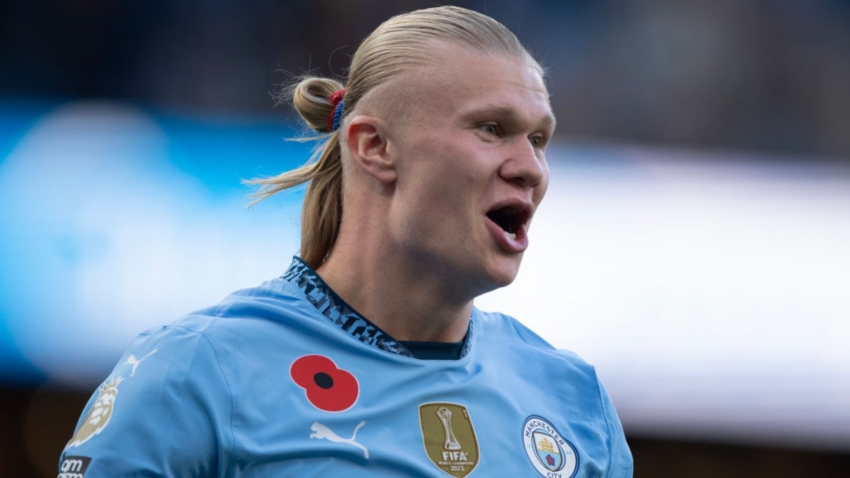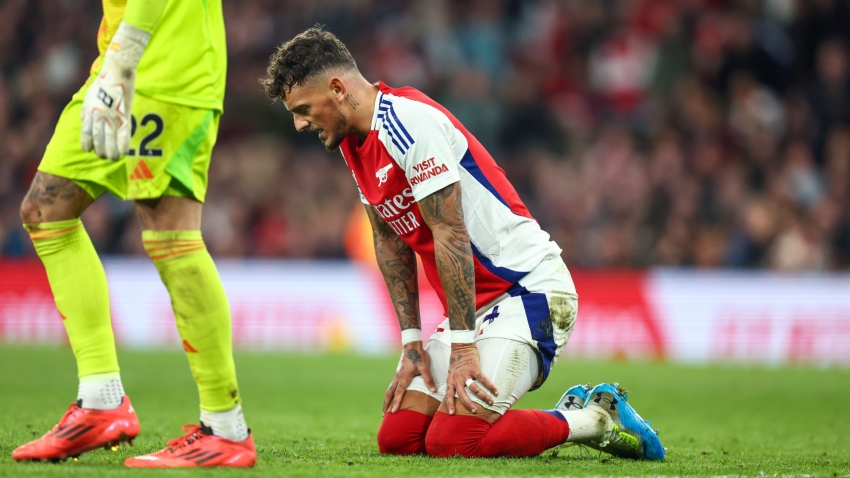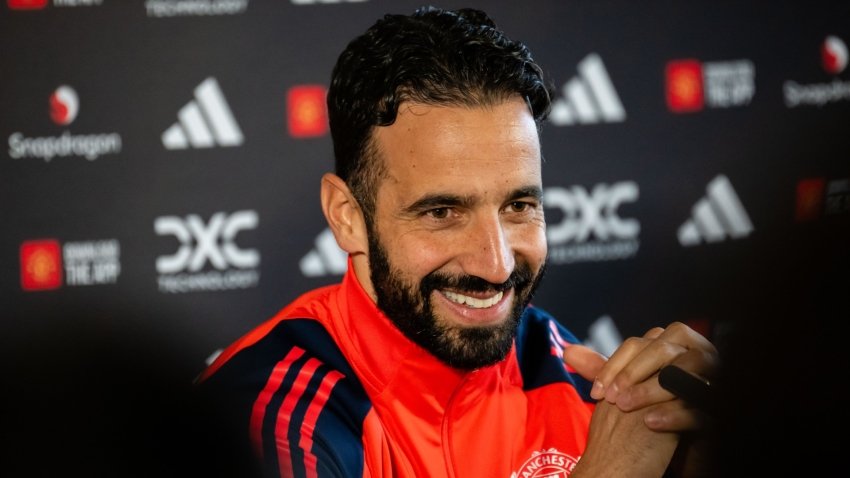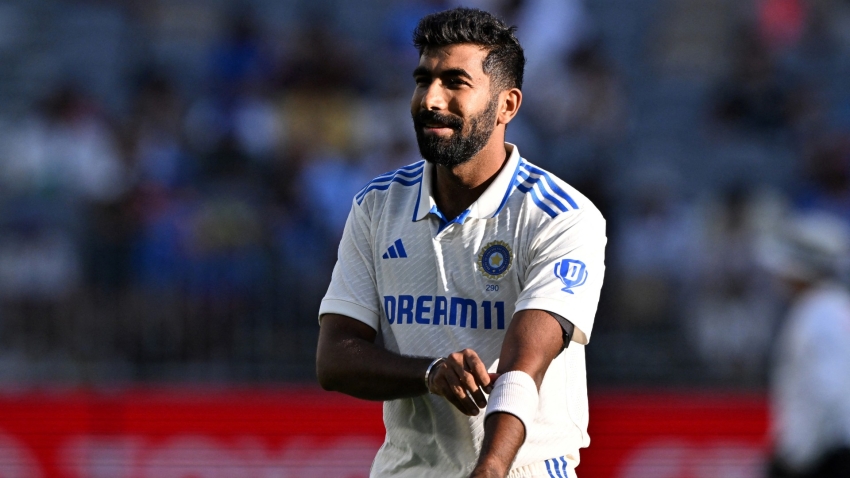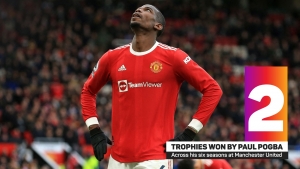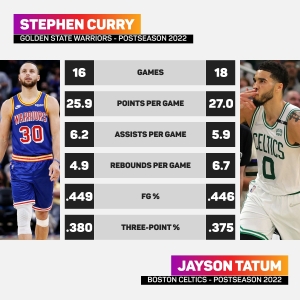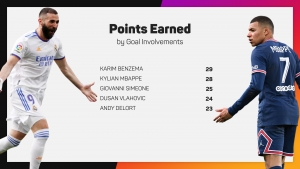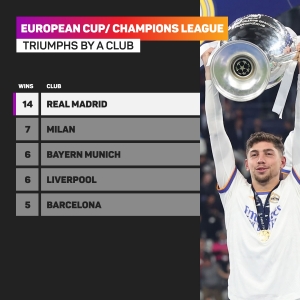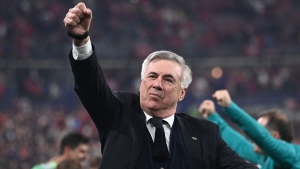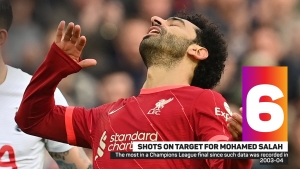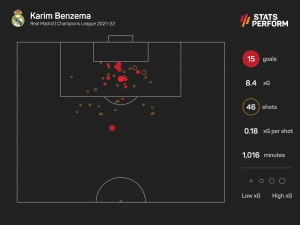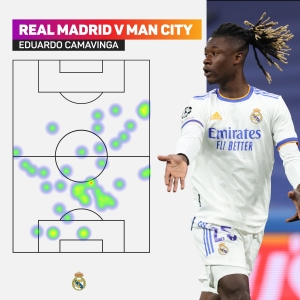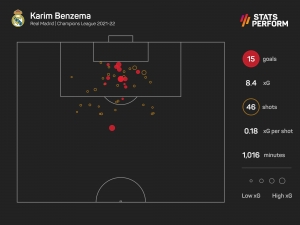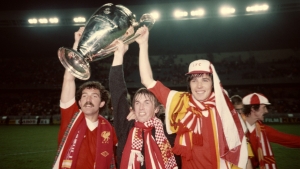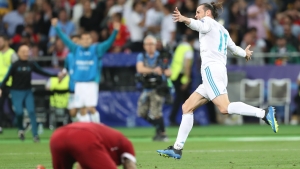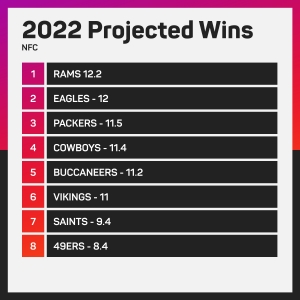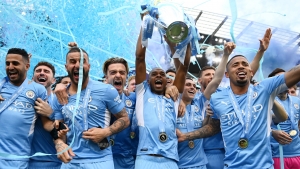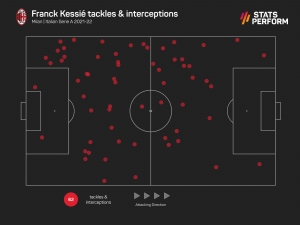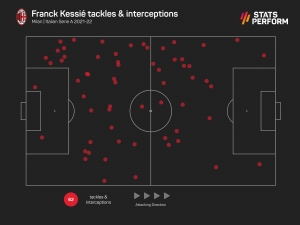The start of the 2022 NFL season is still over three months away.
However, rarely is it considered too early to make predictions about what is to come in the upcoming campaign.
And, with the draft in the books, teams having made the vast majority of their offseason moves and the scheduled, we now have all the information we need to make such prognostications.
So after an extremely dramatic offseason defined by blockbuster trades, which teams are in the mix to excel in 2022 and which should already have half an eye on the 2023 draft?
To answer those questions, Stats Perform has produced projected totals for every team for the forthcoming season.
The projection projects every future game to give a predicted win percentage for each team across their games.
Rather than being a simulator of future games, the projections are calculated by looking at each team’s quarterback and QB Efficiency versus Expected – performance in terms of yards added in expected passing situations – as well as team values for pass protection/pass rush, skill position players/coverage defenders and run blocking/run defense.
There are several standout takeaways from this season's projection, with a new power potentially emerging in the NFC and one of last year's Super Bowl teams seemingly set for regression.
Eagles to join NFC elite?
The Eagles suffered a meek exit to the Tampa Bay Buccaneers in the wild-card round of last season’s playoffs.
Their win projection following an impressive 2022 offseason suggests replicating that this year would mark a gross underperformance. Indeed, Philadelphia's projected total of 12.0 is the second best in the NFC, trailing only defending champion Los Angeles Rams (12.2).
The Eagles' position is built on their strength in the trenches. Philadelphia finished the 2021 season ranked fifth in pass-block win rate and second in run-block win rate.
On the defensive side, the Eagles were eighth in pass-rush win rate and 11th in run disruption rate and made moves to boost both areas, signing Haason Reddick to a one-year deal after a second successive double-digit sack season in 2021 and drafting defensive tackle Jordan Davis – the star of the NFL Combine renowned for his ability to soak up double teams and excel against the run – in the first round.
Philadelphia also improved the back seven through both the draft and free agency, taking advantage of the slide of Davis' former Georgia teammate Nakobe Dean to boost a linebacker group seen as a weakness. Dean had six sacks, six pass breakups, two interceptions and two forced fumbles in 2021.
And last week, the Eagles signed cornerback James Bradberry to a one-year deal. With Bradberry and Darius Slay, the Eagles now have the only two players to register at least 15 interceptions and 80 or more pass breakups since 2016 in a secondary that finished 11th in open-allowed percentage last season.
Quarterback Jalen Hurts' 10 rushing touchdowns were tied for the sixth most in the NFL last season. However, the pressure on him to improve as a passer will be immense following the Eagles' acquisition of A.J. Brown in a trade with the Tennessee Titans. Brown (32.8%) and the Eagles' 2021 first-round pick DeVonta Smith (35.0%) were both in the top 12 in big-play rate last year.
Brown registered a burn (when the receiver wins his matchup with a defender when targeted by his quarterback) 64.0 per cent of the time (league average was 59.5%) and he tied for the league lead with 4.0 burn yards per route.
Hurts had a 77.1 well-thrown percentage in 2021, which was below the NFL average of 77.9. An improvement will be needed for the Eagles to realise their potential. If that does not happen given the wealth of talent around him, then they may use their extra first-round pick in 2023 to help them find a quarterback better equipped to help them do so.
Can the Vikes Challenge the Pack?
The Vikings have not come close to challenging the Packers in the NFC North in recent times, missing the playoffs in each of the last two seasons.
But the projection indicates that could change.
Bidding to stay competitive while undergoing a sea change in the front office and at head coach with Kwesi Adofo-Mensah taking over as general manager and Kevin O’Connell replacing Mike Zimmer on the sideline, the Vikings have a win projection within striking distance of the Pack.
There are several reasons for the gap between the two being so marginal. Aaron Rodgers was second in QB EVE last season, but Kirk Cousins was not too far behind in seventh for the Vikings.
Cousins also has the advantage of throwing to a receiving group that won a collective 35.3 per cent of its coverage matchups in 2021. The Vikings were fourth in the NFL in that regard. The Packers were third but have since traded Davante Adams, whose combined open percentage against man and zone coverage of 46.6 per cent was fifth among receivers with at least 100 matchups.
Thanks in part to an impressive 2021 season from Rashan Gary, the Packers were fourth in pass-rush win rate, but the Vikings were 10th and will hope to get Danielle Hunter healthy this year to aid their cause. And while Minnesota struggled on the offensive side of the trenches last season, their pass-block win rate standing of 26th was still only three spots below that of a Packers line that still has issues on the right side.
The Packers remain the better football team in most areas, but the loss of Adams has levelled the playing field somewhat for Cousins, whose efficiency numbers reflect his ability to produce on a similar level to Rodgers in the passing game.
Further narrowing the gap is the difference in schedules. The Packers face the 15th-toughest slate, but only eight teams have it easier than Minnesota on paper. The game is not played on paper, yet the numbers and the apparent quality of respective opponents point to the Packers looking over their shoulder in the division with more concern in 2022.
The Trey Lance question
It's difficult to make a judgment on how Trey Lance will perform as the San Francisco 49ers' starting quarterback after just two starts as a rookie last year.
Lance produced some encouraging flashes when he did play, blending aggressiveness with accuracy. But the volatility in range of outcomes for a player of his inexperience is higher than that of the man he will likely replace as the starter – Jimmy Garoppolo.
With the projection assuming Lance plays 75 per cent of the snaps and Garoppolo 25, the Niners – who went 10-7 last year before surging to the NFC championship game – are projected to win 8.4 games. That puts them second in the NFC West behind the Rams, with the Cardinals in third with 8.1 in part due to DeAndre Hopkins' six-game suspension.
The takeaway from this is clear. The Niners, who were first in pass-rush win rate, eighth in run disruption rate, 10th in pass-block win rate, sixth in run-block win rate and 10th in collective open percentage among their pass catchers last season, have the support system to elevate Lance and ensure he keeps them in the mix.
But playing the eighth-toughest schedule in the NFL, it's impossible to predict how a move from a player in Garoppolo, who was 10th in QB EVE in 2021, to a high-upside relative unknown will go.
That's why one of the better rosters in the NFL finds itself closer to the middle of the pack. If Lance is who the Niners hope he is, they will quickly be back among the league's upper echelon.
The Deshaun Watson question
While the Browns' trade for Deshaun Watson was the most controversial move of the offseason, there is no doubt his arrival in Cleveland has the potential to catapult them to the top of the AFC.
The projection certainly expects his acquisition to have that impact, with the Browns predicted to win 10.8 games. That’s behind only the Kansas City Chiefs (11.2) and Buffalo Bills (10.9) in the AFC.
Cleveland's schedule, which is the second-easiest in the NFL, plays a substantial role in the projection, which accounts for potential league discipline against Watson.
The Browns' predicted win total is also illustrative of the gap between Watson and the man he will displace as the starting quarterback – Baker Mayfield. Watson was seventh in QB EVE in 2020, whereas only eight quarterbacks with at least 100 pass plays in expected passing situations had a worse EVE than Mayfield last year.
Possessing a defensive line that was ranked in the top five in pass-rush win rate last year and an offensive line that was in the top 10 in run-block win rate along with two premier backs in Nick Chubb and Kareem Hunt, the Browns have the personnel in place to dictate games in the trenches. After landing Watson, they now boast a quarterback who can help them properly capitalise on their advantage in those areas.
A Browns ascension could come at the expense of the AFC's representative in the Super Bowl last season – the Cincinnati Bengals. With a prediction of 8.1 wins, the projection does not anticipate the Bengals competing for the Lombardi Trophy in 2022. Instead, it expects a drastic bump back down to earth.
So, with the Bengals playing the 21st-toughest schedule in the NFL, why is their projection so low? Though the Bengals have made moves to improve an offensive line that was 25th in pass-block win rate last year (acquiring Alex Cappa and La'El Collins), their roster is not in a position to survive a Joe Burrow injury.
And with the Bengals' pass catchers 23rd in open percentage in 2021 and their defensive front 29th in pass-rush win rate, Cincinnati's projection serves as a clear indicator that the magic of last year’s playoff run may be very difficult to replicate.
While the Bengals' win total is closely tied to an over-reliance on Burrow, the Miami Dolphins' projected number is a product of a lack of faith in the man he beat to the honour of the number one pick in 2020.
Betting on Tua
The Dolphins had a busy offseason making aggressive moves to help set Tua Tagovailoa up for success under first-year head coach Mike McDaniel. However, those big swings will not be enough for Miami to make the leap, at least according to the projection.
A prediction of 7.8 wins and a third-place finish in the AFC East would represent a huge disappointment and likely push a franchise that has two first-round picks in 2023 to move on from Tagovailoa. Tua was 24th in QB EVE last season and, among quarterbacks with at least 100 pass attempts, he averaged the seventh-fewest air yards in the NFL (7.35).
While the Dolphins may look to use Tyreek Hill to stretch the field horizontally following his arrival in a blockbuster trade with the Chiefs, at this point it's tough to envision Tagovailoa making the most of having one of the best downfield weapons in the league at his disposal.
The Dolphins do not look likely to challenge Buffalo in the AFC East, but it may be a familiar tale for the Bills in which they play second fiddle to the Chiefs. Though Josh Allen and Patrick Mahomes went blow for blow in one of the finest playoff games in NFL history last season, there was a decent gap between the two in 2021 EVE with Mahomes third and Allen 11th.
The Chiefs may have lost Hill this offseason, but – to make an obvious statement – as long as they have Mahomes under center, they will remain near the top of the conference.
Playing behind an offensive line that was masterfully reconstructed in 2021 and ended the year third in pass-block win rate and first in run-block win rate, Mahomes still has the ecosystem around him to make the most of his remarkable gifts.
The one thing that could hold him back is the strength of the division in which he plays.
A tale of two divisions
The Chiefs have seen the rest of the AFC West load up in an effort to end their reign in the division.
Yet none of the high-profile moves made this offseason – Russell Wilson's switch from the Seattle Seahawks to the Denver Broncos, the Las Vegas Raiders trading for Davante Adams and the Los Angeles Chargers acquiring Khalil Mack and J.C. Jackson – will tilt the balance of power away from Kansas City, according to our model.
But the AFC West looks set to take the title of the best division in football with all four teams projected to win over nine games.
That is in marked contrast to the AFC South, where the Indianapolis Colts (8.6) have the highest total in the division.
The Titans, meanwhile, are predicted to slump out of contention after earning the number one seed in the conference last season. The Titans have the seventh-toughest schedule in the NFL and are projected to win only 7.5 games after winning at least nine in each of their four seasons under Mike Vrabel.
Despite traditionally remaining competitive under Vrabel, there are several red flags for Tennessee. Quarterback Ryan Tannehill was 17th in EVE last year playing behind an offensive line that was 28th in pass-block win rate.
Tennessee's pass catchers ranked 18th in collective open percentage and on draft day traded Brown, who was third in combined open percentage (48.96) against man and zone coverage among receivers with at least 100 matchups in 2021. In other words, the deck is stacked against Tannehill preventing a poor division from being handed to the Colts.
If their season goes as the projection expects, the Titans may start focusing on 2023 and building a contender around Malik Willis.
And in the NFC South, it's probably not surprising that our model expects the Buccaneers to stay on top with Tom Brady back for another season.









